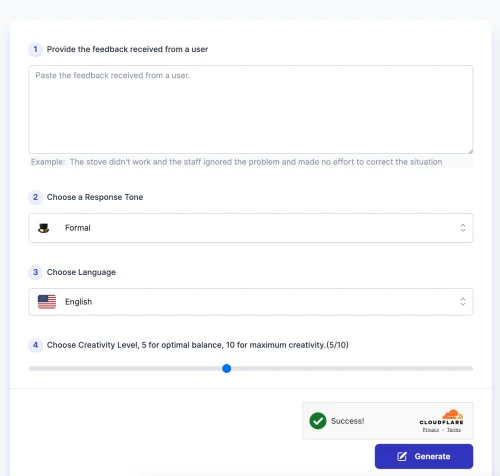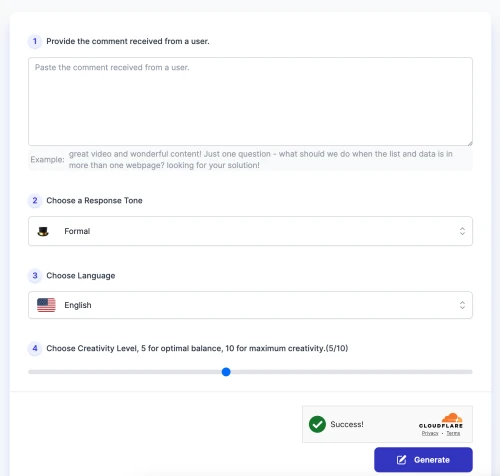Unlock Insights: Find the Answers You Seek on Our Blog
Ultimate Guide: Excelling in Customer Service Representative with Expert Techniques and AI Tools
By Evelyn Sterling
In the digital and fast-paced business world, customer service is crucial for a company’s reputation and success. It not only addresses immediate customer needs but also fosters long-term loyalty and trust, crucial for sustained growth and a strong brand. Given the power of word-of-mouth and online reviews, effective customer service is essential.
This post examines the vital role of customer service representatives as the face of a business, discussing key skills like communication, problem-solving, and empathy. We’ll also look at how AI can enhance these interactions, offering more efficient and tailored customer experiences.
Our goal is to provide a detailed guide for customer service professionals to excel in their roles, using both foundational skills and innovative AI tools to improve customer service and drive business success.
Understanding the Role and Responsibilities of a Customer Service Representative
Definition of a customer service representative
A customer service representative (CSR) acts as the crucial link between a business and its customers, embodying the company’s values and service ethos. This role involves direct interaction with customers to handle inquiries, resolve problems, and provide essential information about products or services. CSRs are often the first point of contact for a customer’s experience with a company, making their role fundamental in shaping the customer’s perception and overall satisfaction.
The key responsibilities of a customer service representative
- Managing Inquiries: This involves responding to customer questions through various channels like phone, email, chat, or social media, ensuring that each inquiry is addressed promptly and accurately.
- Resolving Problems: CSRs must efficiently handle complaints and issues, troubleshoot problems, and provide timely solutions to ensure customer satisfaction. This often requires a deep understanding of the company’s products or services, as well as the ability to think critically and empathetically.
- Providing Information: Offering accurate and comprehensive information to customers about products, services, policies, and procedures is another crucial responsibility. This not only aids in resolving specific inquiries but also helps in educating the customer, potentially leading to additional sales or enhanced customer engagement.
The impact of effective customer service on business success
Effective customer service has a profound impact on business success. It can lead to increased customer loyalty, higher retention rates, and positive word-of-mouth recommendations, all of which contribute to a stronger brand reputation and greater financial performance. Conversely, poor customer service can result in lost sales, negative reviews, and a tarnished brand image. Therefore, the role of the customer service representative is not just about addressing immediate concerns but also about contributing to the long-term health and growth of the business. By understanding and effectively executing their responsibilities, CSRs play a pivotal role in ensuring the ongoing success and competitiveness of the company in the market.

Delivering High-Quality Customer Service
Delivering high-quality customer service requires a blend of strong communication skills, effective problem-solving techniques, and strategic customer satisfaction measures. Let’s break down these essential components:
Communication Skills
- Active Listening: Truly understanding a customer’s needs starts with active listening. This means fully concentrating on the customer’s words, understanding the message being conveyed, and responding thoughtfully. Active listening helps in building trust and can significantly improve the accuracy of the solution provided.
- Clear and Concise Communication: Being able to convey information clearly and succinctly without overwhelming or confusing the customer is vital. Clear communication ensures that the customer understands the solution or information provided, leading to quicker resolution of issues.
- Empathy: Demonstrating empathy involves understanding and sharing the feelings of another person. In customer service, this means acknowledging the customer’s feelings and showing genuine concern for their problem. Empathetic communication can greatly enhance the customer’s experience and satisfaction.
Problem-Solving Techniques
- Identifying Issues: The first step in problem-solving is accurately identifying the customer’s issue. This often involves asking the right questions and analyzing the symptoms of the problem.
- Critical Thinking: Applying critical thinking to analyze the situation and understanding the underlying issues is crucial. This helps in devising effective solutions that address the root cause of the problem.
- Offering Solutions: After identifying and analyzing the problem, the next step is to offer practical and effective solutions. This might also include providing alternatives if the preferred solution is not feasible.
Strategies for Improving Customer Satisfaction
- Personalization: Personalized service goes a long way in enhancing customer satisfaction. Tailoring the service to meet individual customer needs shows that the company values them as individuals, which can foster loyalty and repeat business.
- Follow-up: After resolving an issue or inquiry, following up with the customer to ensure that they are satisfied with the solution can reinforce the company’s commitment to providing outstanding service. It also opens the door for addressing any additional concerns that may arise.
- Feedback Collection: Actively seeking feedback from customers about their service experience helps in understanding how the company can improve. This feedback can be a valuable source of insights for continuous improvement in service quality and customer satisfaction.
By mastering these communication skills, problem-solving techniques, and customer satisfaction strategies, customer service representatives can deliver exceptional service that not only resolves issues but also builds positive, lasting relationships with customers.
Leveraging Advanced AI Tools for Efficient and Targeted Online Customer Service
Incorporating Artificial Intelligence (AI) into customer service operations has revolutionized how businesses interact with their customers, offering unprecedented levels of speed and personalization. AI tools can automate repetitive tasks, analyze vast amounts of data to provide tailored responses, and enhance the overall customer experience.
Introduction to AI in Customer Service
AI in customer service brings two significant benefits: speed and personalization. AI-powered systems can handle requests and queries much faster than human agents, reducing wait times and improving efficiency. Moreover, these systems can analyze customer data and past interactions to provide personalized experiences, making customers feel understood and valued.
AI Email Generator
An AI email generator is an online tool uses natural language processing to craft responses that are coherent, contextually relevant, and tailored to each customer’s inquiry. It ensures consistent communication and can significantly reduce the workload of customer service teams, allowing them to focus on more complex tasks.
AI Review Response Generator
Managing online reviews can be a daunting task, especially for businesses that receive a high volume of feedback. An AI review response generator can streamline this process by automatically generating thoughtful and personalized responses to online reviews. This not only improves response times but also helps maintain a positive and proactive online presence.
AI Feedback Response Generator
Feedback is a goldmine of insights for any business, but manually analyzing and responding to customer feedback can be time-consuming. An AI feedback response generator can process the feedback, identify key themes and sentiments, and generate appropriate responses. This tool helps businesses address customer concerns quickly and effectively, demonstrating a commitment to customer satisfaction.
AI Comment Reply Generator
Social media platforms and other online forums are crucial for customer engagement. An AI comment Reply generator can help manage these interactions by automatically generating responses to comments and queries. This tool can adapt the tone and style to fit the brand’s voice, ensuring consistent and engaging communication across all digital channels.
By leveraging these advanced AI tools, businesses can enhance their online customer service, making it more efficient, personalized, and responsive. This not only improves the customer experience but also boosts the operational efficiency of customer service teams, ultimately contributing to the business’s success.
Conclusion
In conclusion, customer service representatives play a critical role in defining the customer experience and ensuring the success of a business. They manage inquiries, solve problems, and provide essential information, directly influencing customer satisfaction, loyalty, and brand image.
The introduction of Artificial Intelligence (AI) in customer service has revolutionized interactions, offering speed and customization. AI tools like email and comment generators automate routine tasks and analyze data to enhance service efficiency and personalization.
Looking ahead, integrating AI in customer service is essential for businesses to remain competitive and meet customer expectations. Leveraging AI enhances service quality, transforming customer interactions. In this evolving context, the combination of skilled representatives and AI technology is key to providing outstanding customer service that builds lasting customer relationships.
AI Tools Categories
Browse all AI tools by category
All AI Tools
229Amazon
5AI Writing Generator
85Article & Content Writing
35Branding & Identity
54Content Generation
170Creative Ideas
32Educational Resources
34E-commerce
14Etsy
6Events & Celebrations
13Facebook
6Gaming & Fun
5Instagram
3Lifestyle & Personal
8LinkedIn
6Marketing & SEO
40Poem & Lyrics Writing
19Professional Documents
31Social Media
44Story & Book Writing
49Text Effects
14TikTok
7Twitter
3Writing Enhancement
36YouTube
11
Highly rated and most popular AI tools curated by our experts
Recently added AI tools that are gaining traction
- AI Post Generator

- AI Bullet Point Generator

- AI Discussion Post Generator

- AI 2 Weeks Notice Letter Generator

- AI Content Creation Ideas Generator

- AI Radio Ad Script Generator

- AI Podcast Script Generator

- AI Resume Objective Generator

- AI Resume Headline Generator

- AI Password Generator

- AI Snapchat Caption Generator

- AI Snapchat Username Generator

- AI Pinterest Board Name Generator

- AI LinkedIn Experience Description Generator

- AI Twitter Hashtag Generator

- AI YouTube Short Idea Generator

we prioritize displaying the latest content closely related to the current blog post.










